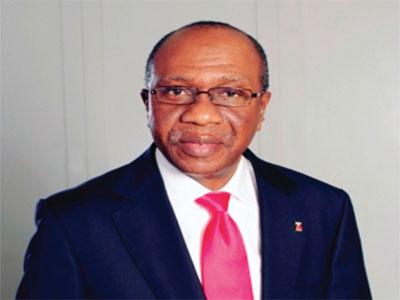


Bank customers may renegotiate loans over interest rate cut

The recent two percent cut from the country’s Monetary Policy Rate (MPR) by the Central Bank of Nigeria (CBN) has ignited a fresh round of mixed feelings among stakeholders.
MPR is the rate at which the CBN lends to commercial banks, which determines the interests charged by the commercial banks while lending to their respective customers. Following the cut in benchmark interest rate from 13 percent to 11 percent, there are concerns that bank customers will request for renegotiation of debt deals to reflect the adjusted rates.
Nigeria’s interest rate structure has been one of the central issues around the ability to start and grow small businesses that will make remarkable contributions to the national economic growth and provide employment. The monetary authorities have been on the tightening end since 2010, increasing the rate from single digit to peak at 13 per cent.
While the opponents of the latest move said CBN Governor, Godwin Emefiele, is at risk of losing credibility over the decision to ease monetary policy, while maintaining currency restrictions, small businesses are hailing the decision which they expect to be implemented to the letter.
Already, the decision which also pegged the asymmetric corridor around the MPR at +200/-700 basis points, meaning that banks can now borrow from the CBN at 13 per cent, but would only deposit at CBN four per cent, is expected to inject about N771.4 billion more into the system.
Meanwhile, the private sector credit currently at N19.1trillion in October and up by 6.8 per cent year-on-year may have also got a new boost with the restriction on all cheap income lines of banks by the policy.
To achieve this, banks must improve on their risk management framework to identify opportunities and earn a relatively higher margin, compared to the cheap rates in the fixed income market, to buoy assets turnover and shareholders’ return.
According to an online publication, Bloomberg, with importers blocked from accessing dollars, the liquidity boost will do little to increase output in manufacturing and other industries, while fueling inflation. “It is difficult to overstate the degree to which this is a highly unorthodox move. Nigeria faces high inflation, pressure on its currency, and it desperately needs to attract foreign capital to fund the current account deficit created by low oil prices. It is, in short, in exactly the sort of situation in which economists would generally expect – and recommend – tighter monetary policy,” the Africa economist at Capital Economics in London, John Ashbourne, said.
The Managing Director and Chief Executive Officer of Cowry Asset Management Limited, Johnson Chukwu, said though the decision portends mixed development like any other issue for banks, the cost of doing business in Nigeria, which is high and the slowing rate growth will now assume a new direction.
Source: TheGuardian
Share this post
Naijanetwork Forum Statistics
Threads: 14843,
Posts: 17902,
Members: 6711


